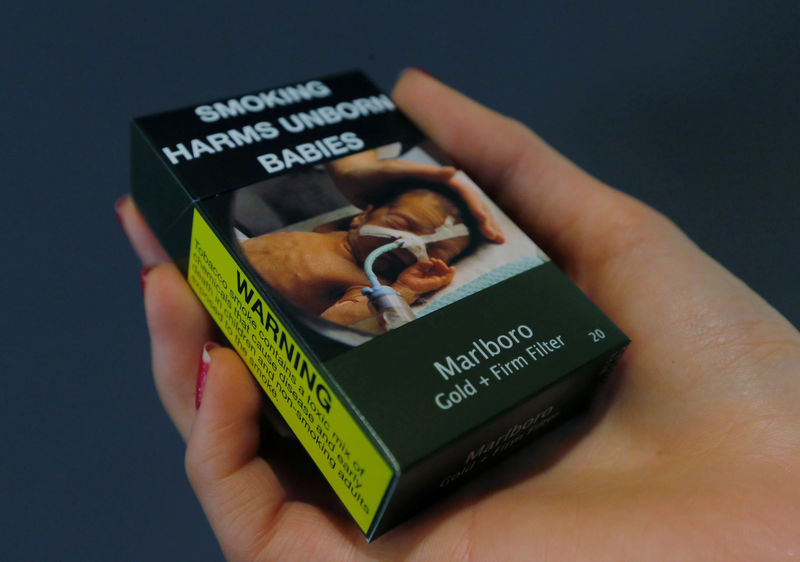By Aditya Kalra
NEW DELHI (Reuters) - Philip Morris International (NYSE:PM) Inc's Indian partner charges machinery-related costs for manufacturing its Marlboro cigarettes in India, the company said on Wednesday, following a Reuters article that showed it may have circumvented foreign direct investment rules.
Philip Morris has for years paid manufacturing costs to Godfrey Phillips, despite a nine-year-old government ban on foreign direct investment in the industry, Reuters reported last week, based on a review of dozens of internal company documents dated between May 2009 and January 2018. (https://reut.rs/2NIlHD8)
Philip Morris and Godfrey have said they comply with Indian rules.
India prohibited foreign direct investment in cigarette manufacturing in 2010. Ahead of the ban, Philip Morris formed a new wholesale trading company with Godfrey in 2009, and the two sides signed a procurement agreement.
Philip Morris' director for corporate affairs in India, R. Venkatesh, said on Wednesday that under that agreement Godfrey "manufactures Marlboro cigarettes and recharges any costs related to special machinery for the manufacture" of those cigarettes to the global tobacco giant's Indian unit.
"This recharge is simply a business expense," Venkatesh told Reuters by e-mail, adding that the arrangements were in "full compliance" with Indian regulations.
Philip Morris had not commented on the Reuters story after it was published on March 6. On Monday, Godfrey told Indian stock exchanges it was in compliance with Indian laws and any suggestion it had violated foreign investment rules was "completely misconceived and misplaced".
After the Reuters report was published, a senior official at India's main financial crime-fighting agency, the Enforcement Directorate, said Philip Morris and Godfrey were being investigated for alleged violations of the country's laws. The scope of the investigation, the source added, was much broader than the issues highlighted in the Reuters story.
Three former officials and one former head of the Enforcement Directorate had reviewed the Philip Morris documents for Reuters and said the dealings should be investigated for potentially breaking the foreign investment rules.
"We remain available to discuss this matter further with the appropriate regulatory authorities," Venkatesh said in his e-mail to Reuters on Wednesday.
Philip Morris paid Godfrey for items ranging from large cigarette-making machines to costs of smaller equipment such as barcode scanners and printers deployed in Godfrey's factories, the Reuters review of documents found.
Six invoices issued by Godfrey showed billing of 45.5 million Indian rupees ($644,200) to Philip Morris between December 2013 and January 2018 for manufacturing-related charges.
One invoice from January 2018 sent from Godfrey to Philip Morris showed the Indian company had spent 206 million rupees ($3 million) on capital expenditure for Marlboro-related manufacturing activities since 2009, though it was not clear how much of that was paid by Philip Morris.

Other than regular payments, Philip Morris also signed off on one-time expenses and refurbishment costs incurred by Godfrey on at least two occasions in 2013 and 2014. It then accounted those transactions internally under a heading "Packaging - Research", the documents showed.